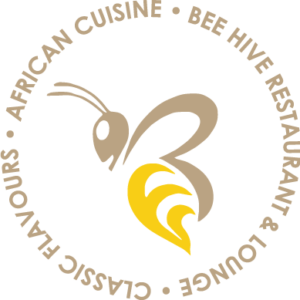More and more people are becoming conscious of what they eat. One of the most common food debates today is between organic and conventional foods. Many ask: Are organic foods really healthier? Is the cost of organic food worth it? What’s the difference between the two?
In this comprehensive article, we will explore the health benefits of eating organic foods compared to conventional foods. We will also break down the differences, explain the impact on your body, and help you make better choices for your health and family.
What Are Organic Foods?
Organic foods are grown and processed using natural methods. Farmers who grow organic food follow strict rules. These include:
- No synthetic pesticides or herbicides
- No genetically modified organisms (GMOs)
- No synthetic fertilizers
- No antibiotics or growth hormones for animals
- Use of natural compost, crop rotation, and organic feed
Organic farming focuses on soil health, animal welfare, and environmental sustainability.
What Are Conventional Foods?
Conventional foods are grown using modern farming techniques. This includes:
- Synthetic chemicals to control pests and weeds
- Chemical fertilizers to increase growth
- Hormones and antibiotics for faster animal growth
- Use of genetically modified seeds (GMOs)
These methods are used to increase food production and lower the cost of farming. However, many people are concerned about the health effects of consuming food grown this way.
Nutritional Differences: Organic vs. Conventional
Higher Nutrient Content in Organic Foods
Studies have shown that organic fruits and vegetables often have higher levels of certain nutrients, such as:
- Vitamin C
- Iron
- Magnesium
- Antioxidants
One reason is that organic plants produce more natural protective compounds (like polyphenols) because they are not protected by synthetic chemicals.
Fewer Nitrates in Organic Produce
Organic vegetables usually contain lower levels of nitrates. High levels of nitrates have been linked to certain health problems like cancer and heart disease. Eating organic can reduce this risk.
Better Omega-3 Fatty Acids in Organic Animal Products
Organic meat, milk, and eggs contain more omega-3 fatty acids. This is because organic animals are usually fed a grass-based diet and are pasture-raised, which is better for their health—and yours.
Pesticide Exposure and Health
What Are Pesticides?
Pesticides are chemicals used to kill pests. They are commonly used in conventional farming. The problem is that pesticide residues remain on food even after washing or cooking.
Health Risks of Pesticides
Many pesticides are linked to:
- Hormonal imbalance
- Neurological problems
- Cancer
- Developmental delays in children
Children and pregnant women are especially at risk. Eating organic reduces your exposure to these harmful substances.
Antibiotics and Hormones in Conventional Meat
Why Antibiotics Are Used in Conventional Farming
In conventional animal farming, antibiotics are often used to:
- Prevent disease
- Promote faster growth
However, overuse of antibiotics can lead to antibiotic resistance, which is a growing public health crisis.
Growth Hormones and Human Health
Hormones are used to make animals grow faster and produce more milk or meat. Some studies suggest that consuming food with artificial hormones may increase the risk of:
- Cancer
- Early puberty in children
- Hormonal imbalances
Organic meat and dairy products are free from synthetic hormones and antibiotics, making them a safer option.
Environmental Impact: Organic Is Cleaner
Less Pollution and Soil Degradation
Organic farming does not use harmful chemicals that can pollute water, destroy soil health, or kill beneficial insects like bees.
Better for Biodiversity
Organic farms support more plant and animal species, including birds, butterflies, and worms. Healthy biodiversity improves ecosystem stability and food quality.
Lower Carbon Footprint
Organic farms often use less energy and produce fewer greenhouse gases compared to industrial farms. This helps in fighting climate change.
Taste and Freshness
Many people say that organic food tastes better. This may be because:
- It is grown in healthy, nutrient-rich soil
- It is often fresher as it travels shorter distances
- It contains fewer chemicals, which allows the natural flavor to come through
Is Organic Food Worth the Cost?
Organic food is often more expensive than conventional food. But it may be worth the extra money because:
- You reduce your exposure to harmful chemicals
- You support ethical farming and animal welfare
- You improve your long-term health
- You get more nutrients per bite
- You protect the environment for future generations
Think of it as an investment in your health, not just an expense.
Tips for Eating Organic on a Budget
- Buy seasonal fruits and vegetables – They are cheaper and fresher.
- Shop at local farmers’ markets – You can get organic products at lower prices.
- Buy in bulk – Stock up on organic grains, beans, and seeds.
- Start a small home garden – Even a few pots of vegetables can make a difference.
- Follow the “Dirty Dozen” and “Clean Fifteen” list – Choose organic for foods most likely to carry pesticides.
The Dirty Dozen and Clean Fifteen (2025 Update)
Each year, the Environmental Working Group (EWG) releases a list of fruits and vegetables with the highest and lowest pesticide residues.
Dirty Dozen (Buy Organic If You Can):
- Strawberries
- Spinach
- Kale, collard, and mustard greens
- Grapes
- Peaches
- Pears
- Nectarines
- Apples
- Bell and hot peppers
- Cherries
- Blueberries
- Green beans
Clean Fifteen (Safe to Buy Conventional):
- Avocados
- Sweet corn
- Pineapple
- Onions
- Papaya
- Sweet peas (frozen)
- Asparagus
- Honeydew melon
- Kiwi
- Cabbage
- Watermelon
- Mushrooms
- Mangoes
- Sweet potatoes
- Carrots
Who Benefits the Most from Organic Food?
- Pregnant women
- Babies and young children
- People with allergies or weakened immune systems
- Cancer survivors
- Anyone aiming for long-term health and wellness
Conclusion: Making the Healthiest Choice
When comparing organic vs. conventional foods, organic offers many advantages for your health, the environment, and overall well-being. While it might not always be possible to eat 100% organic, making small changes can lead to big health benefits over time.
Choose organic when it matters most. Focus on fresh, whole foods. Support clean farming. Your body, your family, and your planet will thank you.
Beehive Restaurant and Lounge is a vibrant culinary destination in Portland, Oregon, offering a unique blend of authentic African cuisine infused with the sweetness of honey. Whether you’re joining us for a meal or a special celebration, Beehive is your hive of warmth, hospitality, and exceptional culinary delights. Connect with us on social media and join our community to stay updated on our latest offerings and events!








